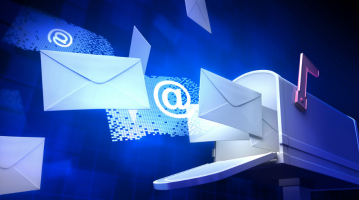What is Email Marketing?
It is a direct and highly personal way to communicate with potential and existing customers. Unlike other forms of digital advertising, email marketing allows businesses to build a direct and ongoing relationship with their audience by delivering targeted content, promotions, and updates directly to their inboxes. A well-executed email marketing strategy is built on permission-based communication, ensuring that recipients have opted in to receive messages, which in turn leads to higher engagement rates and better results.
The Key Components of a Successful Email Campaign
A successful email marketing campaign is more than just sending out a mass email.
- Building an Email List: The foundation of any email strategy is a high-quality email list. Methods for building a list include offering lead magnets like free e-books, exclusive content, or discounts in exchange for an email address.
- Creating Engaging Content: The content of the email must be valuable and relevant to the recipient. This can range from newsletters with industry insights, to special offers and product announcements, to educational content. The goal is to provide value with every email to keep subscribers engaged and to prevent them from unsubscribing.
- Segmentation: Not all subscribers are the same. Segmentation is the process of dividing an email list into smaller groups based on specific criteria such as demographics, past purchase behavior, or engagement level. This allows for the creation of highly targeted messages that resonate with each specific group, increasing open and click-through rates.
- Automation: Marketing automation involves setting up a series of emails to be sent automatically based on a subscriber's actions. This ensures timely and relevant communication without manual effort.
The Strategic Advantages of Email Marketing
Email marketing offers unique advantages that make it an essential tool for businesses:
- High Return on Investment (ROI): It is a cost-effective way to reach a large audience, and its ability to drive conversions makes it incredibly profitable.
- Direct and Personal Communication: Email allows for a one-on-one conversation with a customer. By using personalization tokens, such as the recipient's name, businesses can make their messages feel more personal and relevant.
- Data and Analytics: Email marketing platforms provide detailed analytics that show how many people opened an email, what links they clicked, and whether they converted. This data is invaluable for understanding what resonates with the audience and for continuously optimizing campaigns.
- Building Customer Loyalty: Regular, valuable communication helps build trust and loyalty over time. By providing exclusive content and offers, businesses can make subscribers feel like part of a special community, which encourages repeat business and brand advocacy.
Conclusion: A Cornerstone of Digital Strategy
In conclusion, email marketing is a versatile and effective strategy that remains a cornerstone of digital marketing. Its ability to facilitate direct, personalized communication, combined with its high ROI and powerful analytics, makes it an invaluable tool for nurturing customer relationships and driving business growth. By focusing on building a quality list, creating engaging content, and leveraging segmentation and automation, businesses can unlock the full potential of email marketing and build a lasting connection with their audience.


